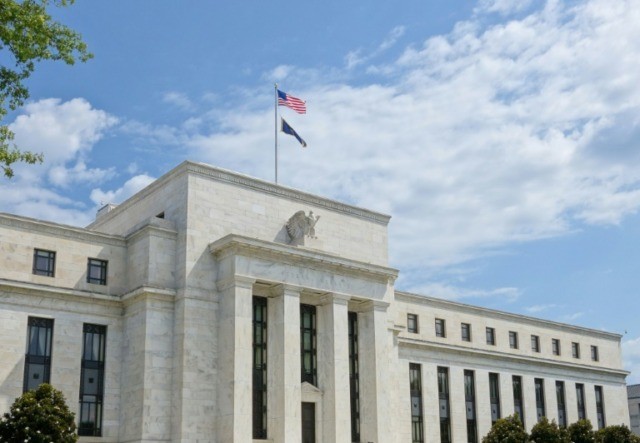Baghdad (AFP) – Iraqi officials fear economic “collapse” if Washington imposes threatened sanctions, including blocking access to a US-based account where Baghdad keeps oil revenues that feed 90 percent of the national budget.
US President Donald Trump was outraged by the Iraqi parliament voting on January 5 to oust foreign forces, including some 5,200 American troops, who have helped local soldiers beat back jihadists since 2014.
If troops were asked to leave, he threatened, “we will charge them sanctions like they’ve never seen before.”
The US then delivered an extraordinary verbal message directly to Prime Minister Adel Abdel Mahdi’s office, two Iraqi officials told AFP.
“The PMO got a call threatening that if US troops are kicked out, ‘we’ — the US — will block your account at the Federal Reserve Bank in New York,” one official said.
Parliament’s vote to oust the troops was triggered by outrage over a US drone strike on Baghdad two days earlier that killed top Iranian general Qasem Soleimani and his Iraqi right-hand-man, Abu Mahdi al-Muhandis.
The Central Bank of Iraq’s account at the Fed was established in 2003 following the US-led invasion that toppled ex-dictator Saddam Hussein.
Under United Nations Security Council Resolution 1483, which lifted the crippling global sanctions and oil embargo imposed on Iraq after Saddam’s invasion of Kuwait, all revenues from Iraqi oil sales would go to the account.
Iraq is OPEC’s second-biggest crude producer and more than 90 percent of the state budget, which reached $112 billion in 2019, derives from oil revenues.
To this day, revenues are paid in dollars into the Fed account daily, with the balance now sitting at about $35 billion, Iraqi officials told AFP.
Every month or so, Iraq flies in $1-$2 billion in cash from that account for official and commercial transactions.
“We’re an oil-producing country. Those accounts are in dollars. Cutting off access means totally turning off the tap,” the first Iraqi official said.
The second official said it would mean the government could not carry out daily functions or pay salaries and the Iraqi currency would plummet in value.
“It would mean collapse for Iraq,” the official said.
– Trump ‘politicises everything’ –
A third senior Iraqi official confirmed the US was considering “restricting” cash access to “about a third of what they would usually send.”
The Federal Reserve declined to comment on Trump’s threat.
A US State Department Official confirmed to AFP that the possibility of restricting access to the Fed account was “raised” with Iraq following the vote.
“You can imagine why, if troops were expelled, banks might be nervous about sending lots of… cash to Baghdad,” this official said.
But the US threat was still highly unusual as the Fed is meant to be independent of foreign policy.
“The attempt to politicise dollar shipments has the Bank worried because it affects its prestige and integrity in dealing with clients,” the State Department official added.
“Trump is obviously willing to politicise everything.”
Washington has considered the measure for months, with a senior US diplomat at the Baghdad embassy telling AFP in July it was looking at “limiting the cash that comes into Iraq.”
“That would be the nuclear option,” this diplomat added at the time.
Just before Iraqi lawmakers voted on the troop ouster, Speaker Mohammad Halbusi warned the world could stop dealing with Iraq’s banks in revenge for the move.
Blocking the Iraqi central bank’s Fed account could be done by blacklisting a government body, which would immediately restrict Baghdad’s access to dollars.
The US already sanctions Iraqi nationals, armed groups and even banks for links to Tehran, Washington’s arch-foe in the region.
It had left oil revenues untouched, with officials previously telling AFP such a move would be too damaging to a country considered a US ally.
– US would ‘lose Iraq’ –
But ties worsened recently, with the US frustrated by Iraq’s alliance with Iran and repeated rocket attacks on US installations blamed on Iraqi factions.
Relations then took a nosedive with the January 3 US drone strike that killed Soleimani and Muhandis, a senior Iraqi paramilitary figure.
Iraq slammed the killings as a violation of its sovereignty and immediately called for the vote on US troops.
The US is considering other — less inflammatory — options too, US and Iraqi officials said.
One would be declining to renew a temporary waiver that Washington granted to Iraq in 2018 that allows Baghdad to import gas from Iran to feed its gutted power grid, despite US sanctions on Tehran’s energy sector.
If Washington does not renew the waiver in February, then the Trade Bank of Iraq (TBI), which buys the gas, could face secondary sanctions for dealing with blacklisted Iranian entities.
Iraqi officials said the US threat to deny access to oil revenues was met with shock, anger and near-disbelief.
“The PM was pissed and insulted,” one official told AFP.
Another said the US would then irreversibly “lose Iraq.”.
“They’d push us towards Russia, China, Iran. We’d have to form a separate economy with those countries.”

COMMENTS
Please let us know if you're having issues with commenting.